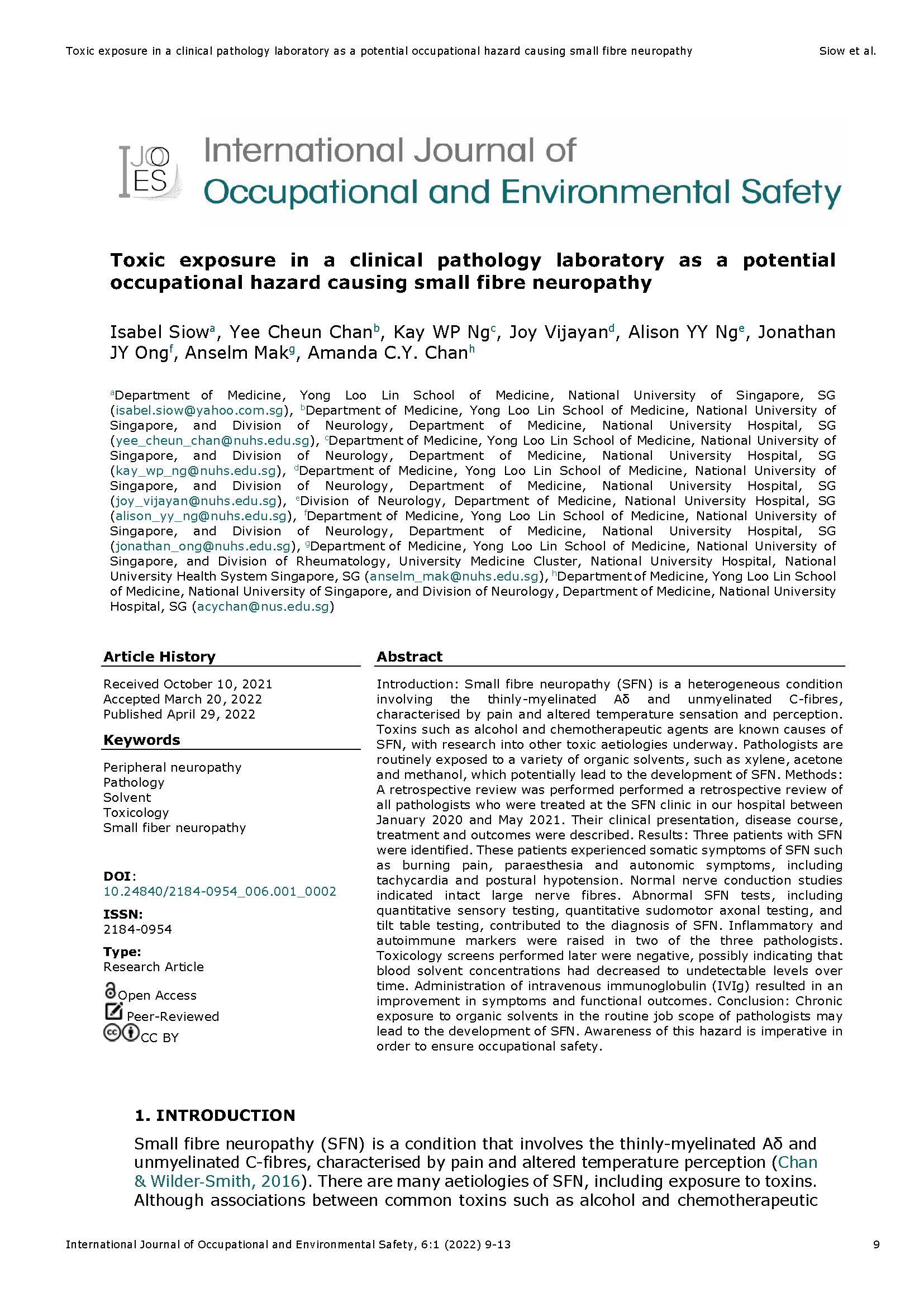Toxic exposure in a clinical pathology laboratory as a potential occupational hazard causing small fibre neuropathy Article
Main Article Content
Abstract
Introduction. Small fibre neuropathy (SFN) is a heterogeneous condition involving the thinly-myelinated Aδ and unmyelinated C-fibres, characterised by pain and altered temperature sensation and perception. Toxins such as alcohol and chemotherapeutic agents are known causes of SFN, with research into other toxic aetiologies well underway. Pathologists are routinely exposed to a variety of organic solvents, such as xylene, acetone and methanol, which potentially lead to the development of SFN.
Methods. We performed a retrospective review of all pathologists who were treated at the SFN clinic in our hospital between January 2020 and May 2021. Their clinical presentation, disease course, treatment and outcomes were described.
Results. Three patients with SFN were identified. These patients experienced somatic symptoms of SFN such as burning pain, paraesthesia and autonomic symptoms including tachycardia and postural hypotension. Normal nerve conduction studies indicated intact large nerve fibres. Abnormal SFN tests including quantitative sensory testing, quantitative sudomotor axonal testing, and tilt table testing contributed to the diagnosis of SFN. Inflammatory and autoimmune markers were raised in two of the three pathologists. Toxicology screens performed later were negative, possibly indicating that blood solvent concentrations had decreased to undetectable levels over time. Administration of intravenous immunoglobulin (IVIg) resulted in an improvement in symptoms and functional outcomes.
Conclusion. Chronic exposure to organic solvents in the routine job scope of pathologists may lead to the development of SFN. Awareness of this hazard is imperative in order to ensure occupational safety.
Article Details

This work is licensed under a Creative Commons Attribution 4.0 International License.

